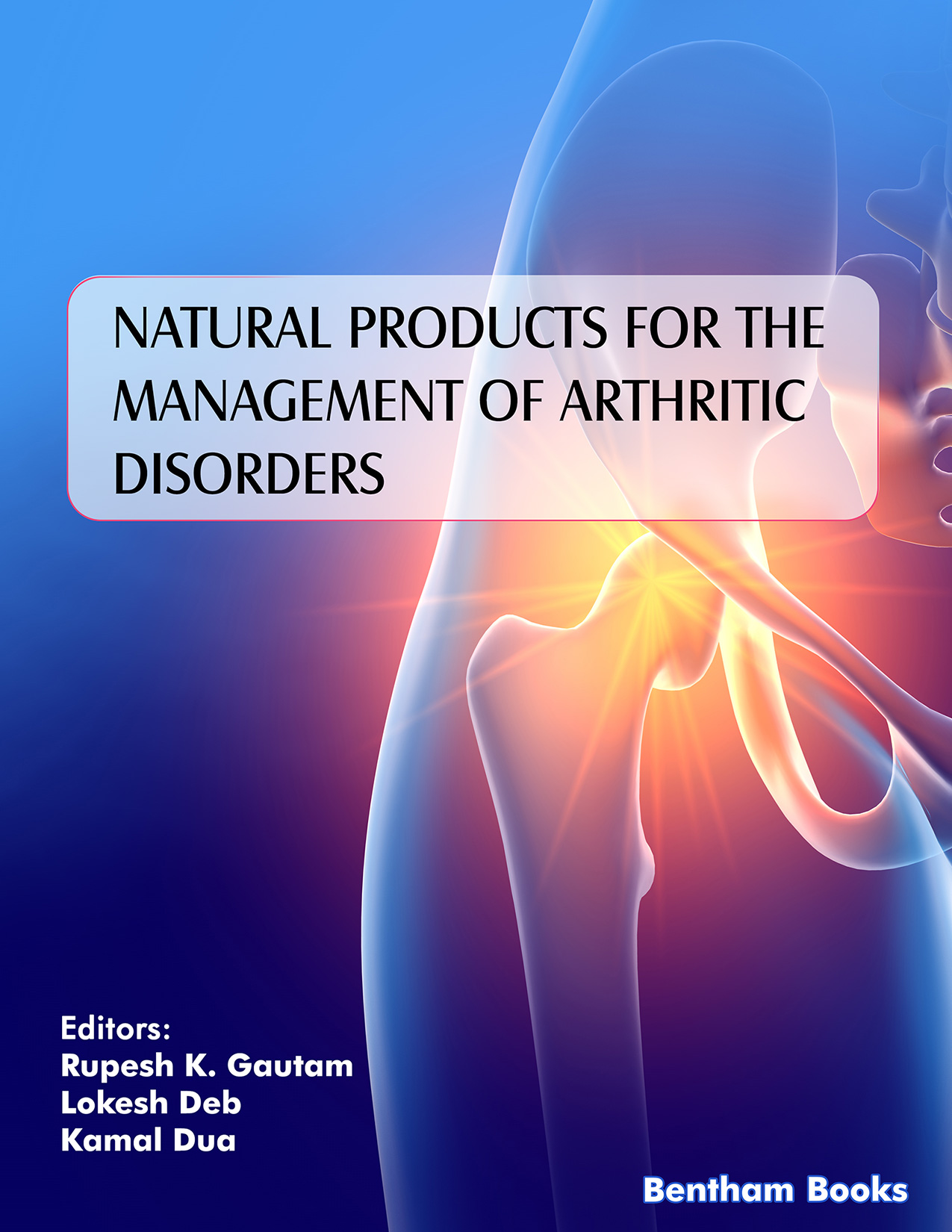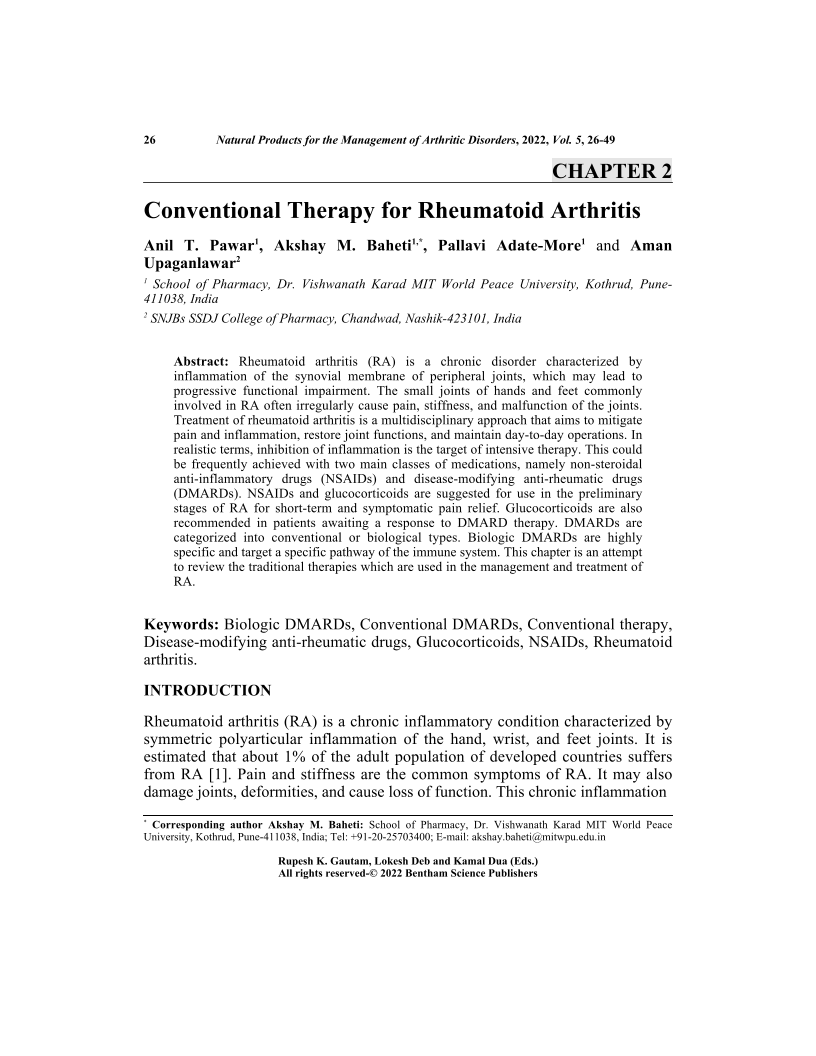Conventional Therapy for Rheumatoid Arthritis

- Authors: Anil T. Pawar1, Akshay M. Baheti2, Pallavi Adate-More3, Aman Upaganlawar4
-
View Affiliations Hide Affiliations1 School of Pharmacy, Dr. Vishwanath Karad MIT World Peace University, Kothrud, Pune 411038, India 2 School of Pharmacy, Dr. Vishwanath Karad MIT World Peace University, Kothrud, Pune-411038, India 3 School of Pharmacy, Dr. Vishwanath Karad MIT World Peace University, Kothrud, Pune-411038, India 4 SNJBs SSDJ College of Pharmacy, Chandwad, Nashik-423101, India
- Source: Natural Products for the Management of Arthritic Disorders , pp 26-49
- Publication Date: August 2022
- Language: English
Conventional Therapy for Rheumatoid Arthritis, Page 1 of 1
< Previous page | Next page > /docserver/preview/fulltext/9789815050776/chap2-1.gif
Rheumatoid arthritis (RA) is a chronic disorder characterized by inflammation of the synovial membrane of peripheral joints, which may lead to progressive functional impairment. The small joints of hands and feet commonly involved in RA often irregularly cause pain, stiffness, and malfunction of the joints. Treatment of rheumatoid arthritis is a multidisciplinary approach that aims to mitigate pain and inflammation, restore joint functions, and maintain day-to-day operations. In realistic terms, inhibition of inflammation is the target of intensive therapy. This could be frequently achieved with two main classes of medications, namely non-steroidal anti-inflammatory drugs (NSAIDs) and disease-modifying anti-rheumatic drugs (DMARDs). NSAIDs and glucocorticoids are suggested for use in the preliminary stages of RA for short-term and symptomatic pain relief. Glucocorticoids are also recommended in patients awaiting a response to DMARD therapy. DMARDs are categorized into conventional or biological types. Biologic DMARDs are highly specific and target a specific pathway of the immune system. This chapter is an attempt to review the traditional therapies which are used in the management and treatment of RA.
-
From This Site
/content/books/9789815050776.chap2dcterms_subject,pub_keyword-contentType:Journal -contentType:Figure -contentType:Table -contentType:SupplementaryData105

